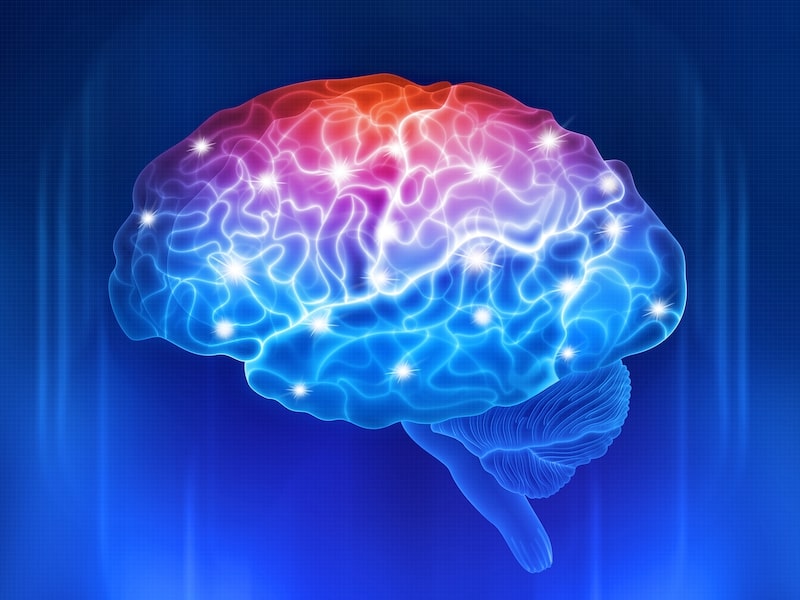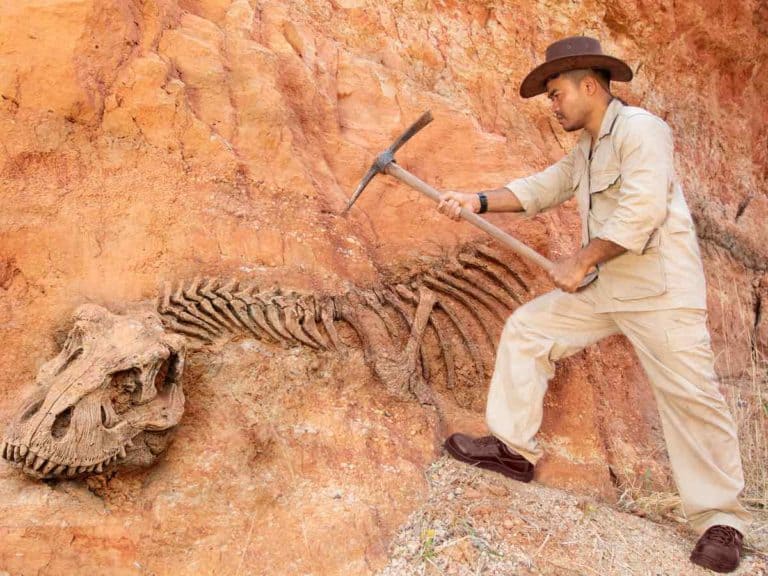12 Easiest College Science Classes for non-STEM Students
Many institutions and programs require students to take a minimum number of science courses for graduation. Science is STEM, which is something that a lot of young people hate. If you are one of them, you may be wondering if there are easy college science classes that you may take to keep your GPA out of harm’s way.
Some of the easiest college science classes are what most liberal arts students take. They include psychology, biology, geology and computer science. Meanwhile, some of the hardest college science classes are those that involve lots of math and medicine, such as chemistry, physics and neuroscience.
Don’t stop reading now if you hate science but have no choice but to take some related classes.
In this article, we will briefly talk about some college science classes that you might be able to pass with the least possible effort. By steering clear of those that will require every cell in your brain to hammer away, you will realize that science classes need not ruin your college experience and your transcript and resume, too!

Top 12 Easiest College Science Classes
Psychology
According to an article on the website of the American Psychological Association (APA), psychology is the fourth most popular college major, says the US Department of Education (DE) itself.
Due to this, it isn’t surprising why a psychology class is also one of the most popular college classes.
What’s really nice about taking a psychology course is that you will learn all sorts of things that can help you predict and explain how people will react.
More importantly, it will help you understand yourself so much better. In the process of earning a passing psychology class grade, you will also develop better interpersonal and communication skills.
There is no denying that psychology is the right science class for you to take in college if you possess one or more of the following traits and characteristics:
- Empathy
- Compassion
- Ethics
- Tolerance
- Patience
- Trustworthiness
- Critical thinking
- Problem-solving
- Organizational skills
Biology
Hate answering brain-twisting science questions but have a lot of questions about everything around you that lives and breathes?
It’s very much likely that biology is the best easy science course for you. That’s because it focuses on the study of living organisms and how they are able to meet the challenges of living in their respective environments.
Various things make biology one of the easiest college classes for just about anyone.
While it involves math, which many students from all academic levels absolutely hate, biology isn’t as math-heavy as other fields of science, especially those that are concerned with non-living things such as minerals, electricity, heavenly bodies and prescription drugs.
In most instances, it’s also effortless to understand the various concepts associated with biology. It’s for the fact that many of them can be easily observed — sometimes, looking around you is all that you need to do!
Taking a biology class will help you develop these essential professional skills:
- Researching
- Investigating
- Analytical thinking
- Problem-solving
- Organizing
- Communication skills
Nutrition
First things first: in a nutrition class, you will encounter some chemistry.
The good news is that it’s not going to be as migraine-inducing for someone who hates math and science as taking an actual chemistry class. And there’s a little biology, too, since it’s all about the nutrients in food and why they are important for the body’s functioning.
Especially if you are a health- or figure-conscious individual, chances are that you will find a college nutrition course more like a pursuit rather than a requirement in order to graduate.
Besides the obvious such as diet, exercise and health promotion, a nutrition class also studies other subjects. Some of them are composition of food, food production and development of new food products. So, in other words, the things that you will study are as diverse as the foods that you and your professor could talk about.
A nutrition class can help you develop traits that potential employers love in applicants, such as:
- Critical thinking
- Aptitude for science and health
- Attention to detail
- Organizing
- Technical know-how
- Written and verbal communication skills
- Listening
- Ability to work with people
- Flexibility
- Decisiveness
Forensic Science
A serious fan of forensics crime drama TV series?
Then you might find a forensic science course as one of the easiest science classes in college. This is especially true if you are not just a mere viewer but also actively participate in helping police forensic evidence investigation experts in solving crimes.
Crime scene investigation, reconstruction of crimes, evidence collection, analyzing physical evidence such as fingerprints and blood, criminal law procedures — these are the topics that a forensic science class will touch on.
There is no denying that it’s one of the best courses to enroll in if you are majoring in criminal justice, criminology, legal studies, psychology or any other closely related discipline. However, feel free to take it even if it’s not related to your degree, but you feel that it can make college more exciting and fulfilling.
It’s very much likely for you to shine in a forensic science class if you possess one or more of the following:
- Concentration
- Patience
- Objectivity
- Logical thinking
- Independent mind
- Ability to work under pressure

Social Science
The scientific examination of the relationships between human beings and societies is referred to as social science. The development of societies and how they operate are tackled, too.
Just about any specialized field or discipline that attempts to interpret human behavior, institutions, societies and others is called soft science.
Some examples include political science, anthropology, sociology, psychology and, of course, social science. They are considered soft as they are presumed to be understandable sans mathematical rigor.
It’s exactly due to this why social science is one of the easiest college science courses that you may enroll in. But because of the extensive syllabus, some college students might find it boring.
Here are some of the reasons to consider having a social science class in college:
- Exposure to different cultures
- Better understanding of mankind and the society
- Improved management of resources
- Smarter choices for the future
- Open doors for various career paths
Environmental Science
If you find social science easy and interesting, then it’s likely that you will also be fascinated with environmental science. Unlike social science that takes a look at humans and the societies they belong to, environmental science concentrates on the planet Earth and the living creatures residing on it.
Keep in mind that an environmental science major is one of the most challenging science-related majors out there.
But fret not because an introductory environmental science course that goes well with an assortment of majors and minors, too, is relatively easy. As a matter of fact, the majority of college students are able to pass it easily.
It’s true that the physical, biological and chemical processes that take place on the planet are the core of environmental science. However, a college class in it will only lightly undertake these matters.
This science class may fit you to a T if you possess any or a lot of these traits and characteristics:
- Passion for the environment
- Desire to inspire change
- Investigative mind
- Problem-solving skills
- Keen eyes
- Critical thinking
- Innovative thinking
- Being a team player
- Written and oral communication skills
- Into news and current events
Earth Science
Initially, it may seem like Earth science and environmental science are one and the same. It’s true that they have similarities. However, they have some key differences, too.
For instance, environmental science centers on living creatures roaming the planet. On the other hand, Earth science tends to focus on things that are under your feet — soil, rocks, metals, water, etc. It also concentrates on various things over your head, such as the atmosphere and the weather system.
Basically, it’s the study of the Earth’s properties, processes and structures. And because our planet is massive, there are many Earth science branches. They range anywhere from oceanography, geology to meteorology.
Completing an Earth science class in college will help hone the following employer-desired skills:
- Research
- Critical thinking
- Problem-solving
- Creativity
- Persistence
- Communication
- Detail-oriented
Geology
As mentioned above, geology is one of the branches of Earth science. Needless to say, if you find Earth science easy, it’s not unlikely that you will also find geology easy.
Provided that you are interested in the exterior surface and interior layers of the planet you are living on, including especially the various materials it is made of and how they came into being, a college geology class should not put your academic performance and, ultimately, GPA on the rocks — pun intended!
What makes geology one of the easiest college science classes that you may take is that its subject matter, the Earth, is something that you are already familiar with. After all, you have been on it since the time you were born. And what’s great about a geology class is that it can give you a deeper understanding of your home planet.
For as long as you love the planet and are interested in getting to know it more, too, you will find geology easy to pass. It will also help a lot if you have any or more of the following:
- Communication skills
- Analytical thinking
- Patience
- Perseverance
- Curiosity
Astronomy
No, astronomy is not the study of the influence of the position of celestial objects such as the stars, planets and moon on the lives of humans and the course of history. What you have in mind is astrology.
Both astronomy and astrology deal with naturally occurring physical structures or associations in the observable universe. However, the former is a natural science, while the latter is a pseudoscience. So, in other words, astronomy uses mathematics, physics and chemistry to explain the existence and evolution of various heavenly bodies.
Do not despair if you dislike science. It’s true that astronomy, as a major, can be difficult. However, as a course, there is no need for you to worry about getting a failing grade, provided that you will do your part.
Taking an astronomy class in college can help you develop important skills, including:
- Reasoning
- Logical thinking
- Concentration
- Communication skills
Zoology
Fascinated with animals? Chances are that you will find a college zoology class fun and interesting rather than grueling and intense. Needless to say, zoology is the study of animals and animal life.
However, refrain from assuming that it’s all about petting animals. If you absolutely have no idea what you are about to get yourself into, you may find yourself flabbergasted. That’s because a course in zoology involves fields such as physiology, anatomy, evolution, behavior and habitat of animals.
As a matter of fact, humans, which are a part of the animal kingdom, are also scientifically studied!
Even if you do not intend to become a veterinarian, veterinary nurse, animal nutritionist or marine scientist, a zoology class can help you land your dream job as it hones an assortment of important qualities, such as:
- Observation
- Analytical thinking
- Emotional stamina and stability
- Problem-solving
- Outdoor skills
- Interpersonal aptitude
- Communication
- Written and oral communication
Botany
If having a green thumb is your claim to fame and you want to make it official by indicating it on your transcript, consider taking a botany class in college. That’s because it involves the study of everything you love — what plants look like, how they function, where they thrive, how people make use of them, etc.
Whether you love gardening or are pursuing food science, nutrition, public health, health and wellness, or wildlife conservation, botany would make for a wonderful course.
Cannot stand math, statistics and other closely related disciplines? You’ll be more than happy to know that dealing with numbers should be the least of your worries if you take a class in botany. However, since one of the things that you will be studying is the growth of plants, you can rest assured that there is a little chemistry involved.
After graduation, a botany course might make your resume appealing to the following industries:
- Horticulture
- Agriculture
- Genetic engineering
- Food manufacturing
- Health care

Computer Science
Among the various college majors, computer science is considered one of the hardest.
The good news is that it’s also one of the easiest courses around. This is especially true since the goal is to provide students with basic proficiency in computer science rather than turn them into software development directors, principal software engineers, and full-stack software developers.
What’s really great about computer science as a class is that you can apply everything that you will learn from it not only after college but also while in the process of completing your chosen degree.
If you possess any or all of the following characteristic traits, a computer science course is right for you:
- Anticipation and diagnosis of problems
- Strong computer and technology know-how
- Critical thinking and problem-solving skills
Related Article: Why are Data Scientists Paid So Much?
There are Difficult College Science Classes, Too
While there are college science classes that can be easy for science haters to pass, there are also those that can give anyone who fears science cold sweats and sleepless nights.
Avoid the following at all costs if you don’t want a horrible college experience and a terrible resume:
- Chemistry. Whether you hate either science or math or both, it’s a good idea to dodge any chemistry class. Chemistry is one of those science classes where being good with numbers is a huge plus. Then there’s also the fact that there are many elements, substances, compounds, formulas and equations to memorize.
- Physics. Just like chemistry, the involvement of math is what makes physics frightening for many college students. What’s more, there are tons of theories, principles and laws to learn by heart.
- Astrophysics. Earlier, we discussed that astronomy is one of the easiest college science classes that you may opt for. But the application of the various theories and laws of physics in order to interpret astronomical observations changes everything. And that is why astrophysics is a no-no for anyone who hates science.
- Biomedical science. Wondering why a biomedical class can be a total nightmare for any college student who is not a huge science fan? Just check out some of the things that you will have to study should you decide to take it: biochemical functions, histological structures, pharmacological principles, pathological processes.
- Physiology. Simply put, physiology is the study of how the human body works. If you think that it’s easy since you are a human and you have a body, think again. Physiology involves chemistry and physics.
- Neuroscience. Also known as neural science, neuroscience is all about the brain and the rest of the nervous system. What makes this college science class challenging is that the molecular, cellular, functional, evolutionary, behavioral and medical aspects of the entire nervous system are all explored.
- Molecular science. Because chemistry, physics, biology and technology are employed when studying molecular structures and systems and their real-world applications, a molecular science class can be taxing.
Related Article: 19 Most Stressful College Majors and How Much They Pay
Just Before You Enroll in a Science Class
Not all college science classes are cut from the same cloth. While some can be extremely challenging and thus difficult to pass, others are surprisingly easy, which is why many college students gravitate toward them.
Even if your chosen major is nowhere near any science-related discipline, chances are you will still have to take at least a couple of science classes to be able to complete your degree and graduate. After all, the majority of colleges and universities have a general education requirement that obliges students to have a few science classes.
Above, we talked about some of the easiest science classes in college — and mentioned a few hard ones, too.
But just because many college students find the science classes we discussed trouble-free to pass doesn’t mean right away that you will also find them easy-peasy. Before you enroll in any college science class, consider your strengths, personal interests, lifestyle, and even academic and career goals.
Related Article: 20 Most Employable Degrees
Disclaimer: The views and opinions expressed in this article are those of the authors and do not necessarily represent those of the College Reality Check.





